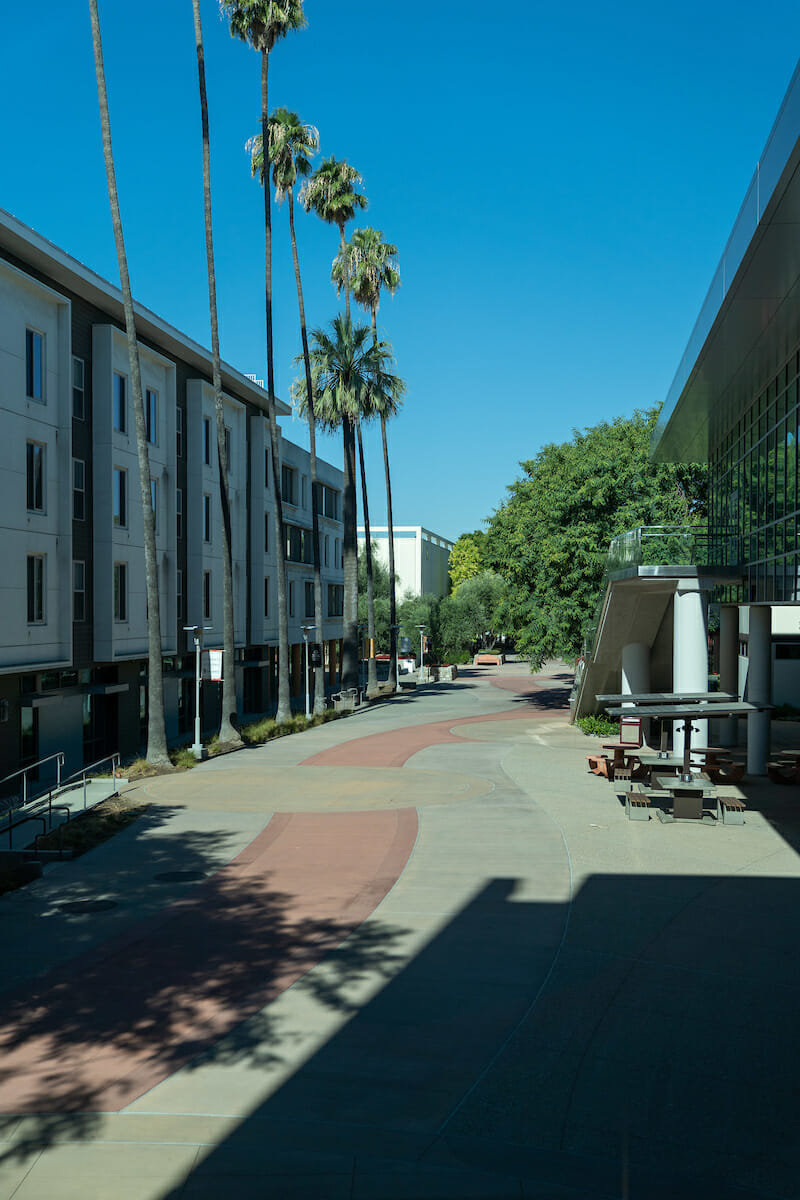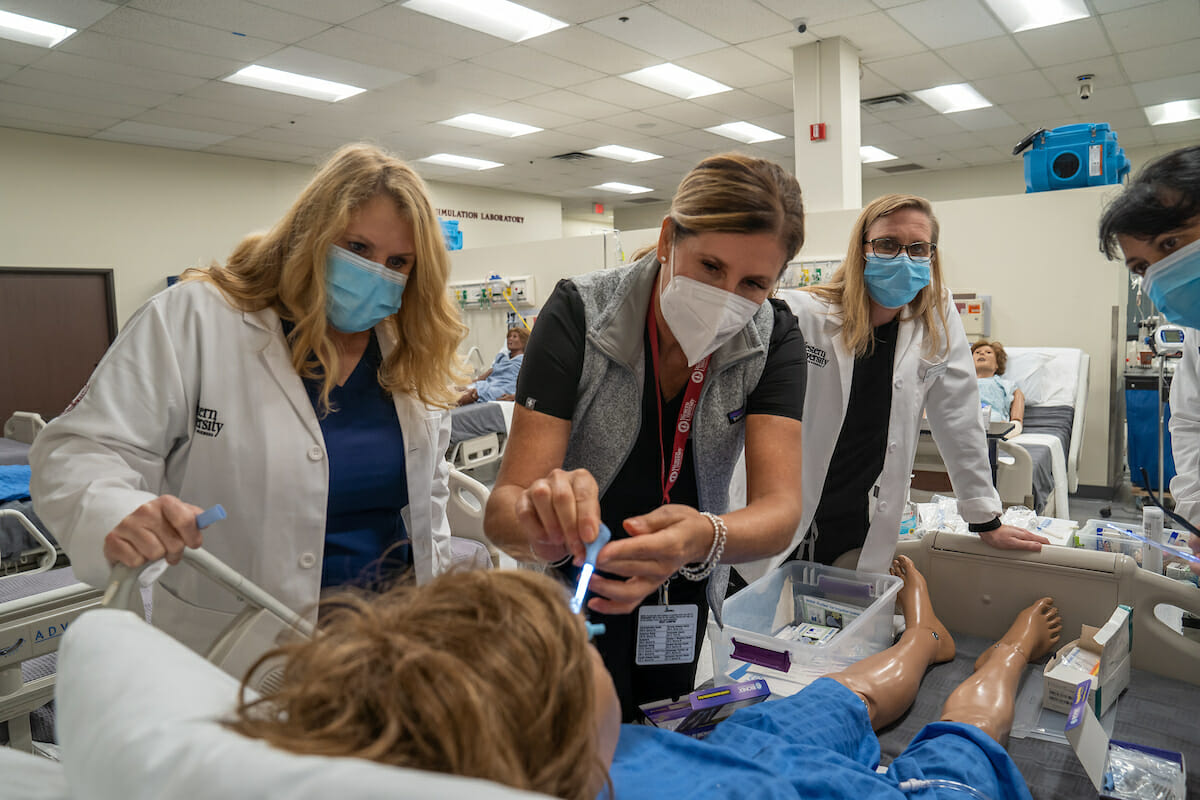
Mission & Vision
Mission
Our mission is to advance nursing education, through a humanistic approach, to enhance health equity and quality of life.
We accomplish this mission by cultivating relationships and academic-service partnerships across health systems that furthers interprofessional collaboration, scholarship, and practice.
Vision
We are innovative catalysts educating nursing professionals who become expert clinicians, leaders, and system partners transforming the health of people worldwide.

College of Graduate Nursing Philosophy
Our Values

The Profession of Nursing is an art and a science requiring foundational knowledge in both liberal arts and sciences. The societal demand to improve health care outcomes provides the context for nursing theory, research, and evidence-based nursing practice. Professional nurses are autonomous in providing preventative care, population health management, and direct patient-centered care based on the American Nursing Association social policy contract (ANA, 2010). Nurses strive to prevent illness and attain, maintain, and regain the health of patients, families, and communities through multiple roles. Within the healthcare systems of local and global communities, these roles include advocates, coordinators of care, direct care providers, administrators, educators, and researchers.
Healthcare Systems
The Institute of Medicine report on the future of nursing, articulates that advancing nursing leadership will improve the care of patients and communities (IOM, 2010). The CGN is uniquely positioned with its programs led by expert faculty and administrators to prepare nursing leaders to meet this challenge. Improvement of quality of life and patient satisfaction serves as indicators of nursing excellence. At the same time, healthcare cost containment must assure patient centered care while providing an efficient and effective use of resources. Therefore, nursing must encompass the larger context of the healthcare system and participate in economic solutions.
Local and Global Communities
The CGN consists of individuals representing a variety of unique backgrounds and regions. Embracing this diversity provides the opportunity to enrich one another as well as influence local and global communities. Through the unique distance format the CGN students and faculty reach beyond the walls of the University creating innovative learning environments. In doing so, more local and global communities are impacted by the scholarship and core characteristics seeded in our students, graduates, faculty, and staff.
Nursing Education is a process that provides opportunities to expand and extend multiple ways of knowing for continued growth and competency for the student and the nursing profession (Benner, Sutphen, Leonard, and Day, 2010). Nursing education draws upon various disciplines and involves organized learning experiences that augment previous knowledge and skill in the preparation to practice advanced nursing. The educational process supports personal, social, and intellectual development while assisting students to attain academic and professional goals. The CGN seeks to evoke honesty and the excitement of discovery, encourage self-expression, and serve as a catalyst for life-long learning.
Nursing education at the CGN is supported by eight pillars. Four represent the core characteristics of our graduates, faculty, and staff, and four represent the Boyer Model of Scholarship (Boyer, 1990).
CGN Core Characteristics
Leadership: Nursing professionals, as leaders, must be strategically placed at the forefront of healthcare change as full partners with other health care professionals. Therefore, graduating masters and doctorally prepared nurses is essential to advance healthcare and lead reform.
Innovation: The current healthcare system demands innovation and creative solutions to enhance quality patient outcomes in a safe environment. The future of healthcare will require new thinking, competencies, and inter-professional collaboration to create new systems of care.
Collaboration: Optimizing the use of resources for the best outcomes requires working together in an inter-professional and intra-professional collaborative effort. Interdisciplinary collaboration enhances the capacity of others for mutual benefit. A common purpose is achieved by sharing risks, resources, responsibilities, and rewards. Nurses in advanced practice go beyond the basic communication, coordination, and cooperation to become fully engaged collaborative partners.
Compassion: Compassion is caring in action and humanism is also a core value of WesternU. Together compassion and humanism guide the nursing curriculum in the context of valuing the quality of life for individuals, families, and communities. The recipients of compassionate and humanistic nursing care are complex organisms influenced through genetic, biological, behavioral, cultural, and environmental factors.
Boyer Model of Scholarship
Scholarship is integral to the learning environment and helps define outcomes achieved by students, faculty, and staff. The CGN embraces the Boyer Model of Scholarship as a dynamic framework fitting for leaders in advanced practice nursing who engage in activities that transcend knowledge acquisition and traditional learning.
Discovery: The pursuit of new knowledge through research and creative activities such as publishing journal articles, authoring/editing books, presenting at conferences, reporting on new research, and/or literary works.
Integration: The connection of knowledge and discovery into larger patterns and contexts, creating new perspectives, and transcending disciplinary boundaries to give meaning to isolated facts.
Application: The employment of disciplinary expertise to results that can be shared and/or evaluated by peers. The application advances beyond the provision of service to those within WesternU to the greater community of health care and education.
Sharing knowledge: Theory, evidence-based practice, and research go hand in hand creating a dynamic process that fosters creativity, independence, clinical reasoning, and moral imagination.
Student-centered learning environments position students to be active participants in the learning experience. In safe and respectful environments, faculty and staff engage in interactive processes with students. In this atmosphere, faculty act as facilitators and role models while focusing on the provision and organization of the curriculum to guide students to construct and structure their nursing knowledge. Together, students and faculty co-create a milieu of respectful questioning, mutual growth, and evaluation. Students bring self-directed learning, a desire to excel, reflection, a respectful attitude, and willingness to participate in active engagement. The CGN staff guide the students through university and college processes and requirements to assure students are correctly placed and supported within the learning environments.
The CGN Philosophy is informed by the following:
ANA (American Nurses Association). (2010). Nursing’s social policy statement: The essence of the profession. Silver Spring, MD: Nursesbooks.org
Benner, P., Sutphen, M., Leonard, V., & Day, L. (2010). Educating nurses: A call for radical transformation. San Francisco, CA: Jossey-Bass.
Boyer, E. L. (1990). Scholarship reconsidered: Priorities of the professorate. San Francisco, CA: Jossey-Bass.
IOM (Institute of Medicine). (2010). The future of nursing: Leading change, advancing health. Washington, D.C.: The National Academies Press.

